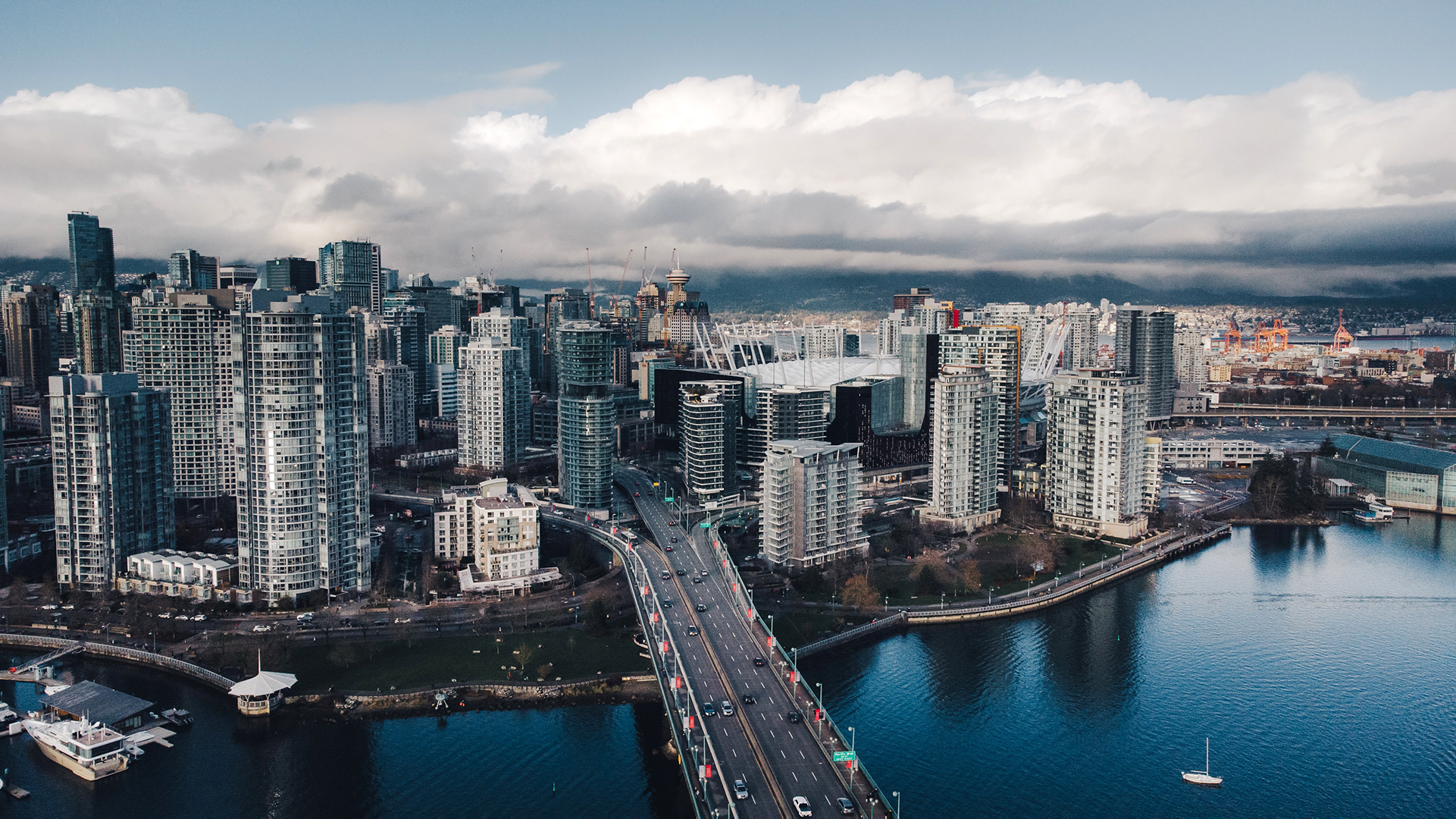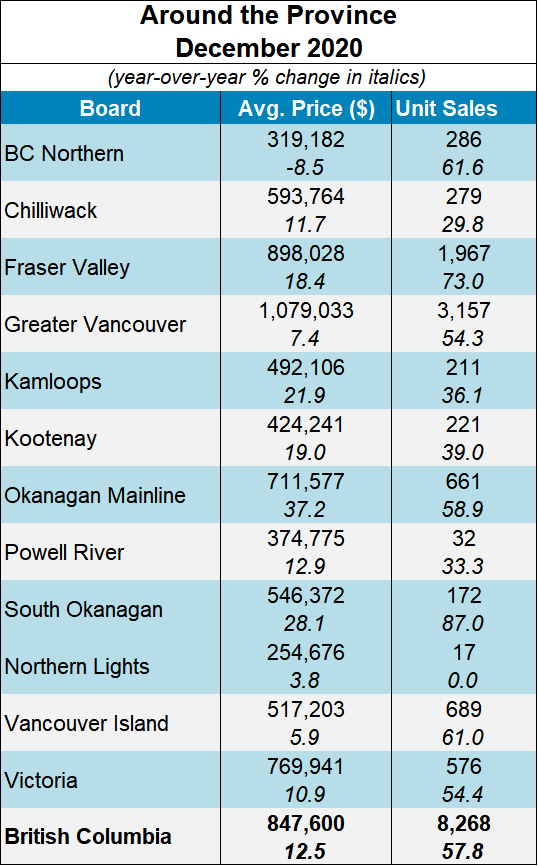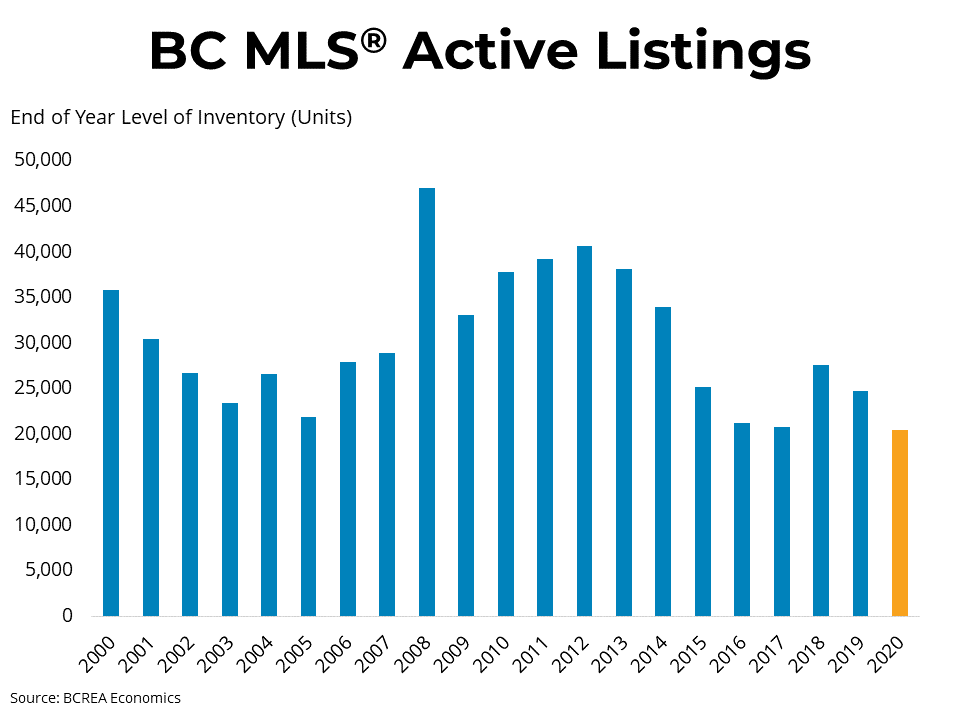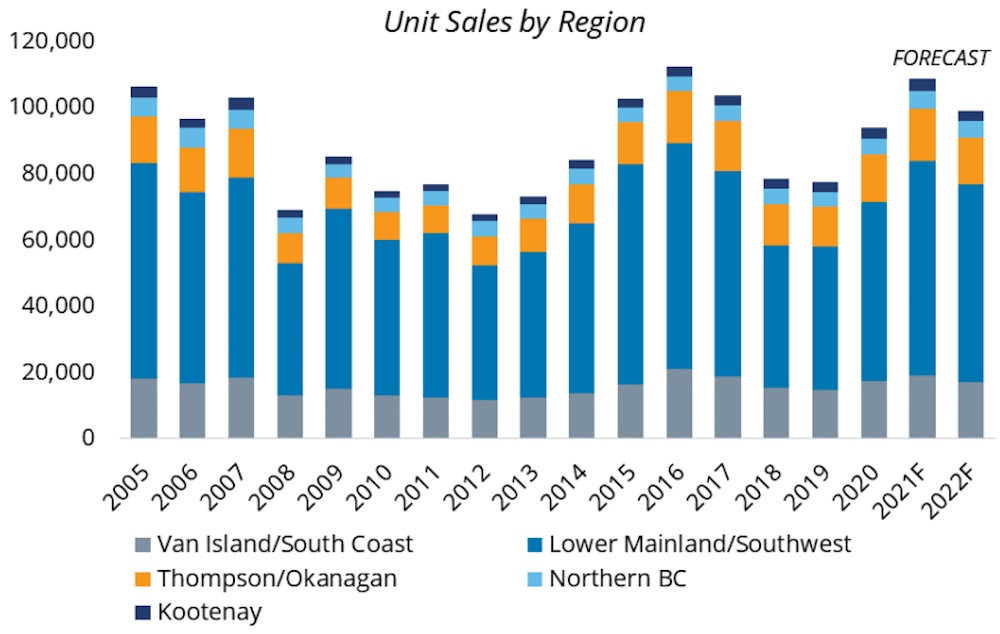
Following the continuous recovery of BC’s economy in 2020, Vancouver’s real estate market is also moving in a better direction. The dataset reported by the Real Estate Association forecasts an increase in sales numbers and average prices increasing.
The British Columbia Real Estate Association announced a report recorded by the Multiple Listing Service (MLS) showed an 11.7 per cent increase in the annual average MLS residential price in 2020 from the average price in 2019. However, this average residential price increase did not impact the number of units sold. According to the report, in 2020 there is a 21.5 per cent increase from the number of units sold in 2019 and a 35.6 per cent total sales dollar volume increase from 2019.
The residential sale unit record of December 2020 showed a 57.8 per cent increase in the residential sale from December 2019 indicates that the housing market is gradually recovering from the COVID-19 pandemic, and will continue to move in a good direction in 2021.

MLS residential unit sales across the province. December 2020 data.
Although the housing market is experiencing a great recovery from the pandemic, the large percentage of units sold increase in 2020 lead to a lack of housing supply in 2021. The record of BC MLS showed a 16.1 per cent decrease in the active residential listings in 2020 December, which might cause an increase in the unit price later in 2021. In January 2021, BCREA forecasted that there will be a 7.7 per cent increase in the MLS average price.

BC MLS active listings history. (Chart from BCREA)
“A strong economic recovery and record-low mortgage rates will continue to drive strong demand this year.” said Brendon Ogmundson, BCREA Chief Economist. BCREA has forecasted an estimated 15.6 per cent increase in unit sales in 2021 in BC during spring and summer, mostly due to the activities in the lower mainland and the southwest regions.
The unit sales percentage and the average MLS home prices percentage in the real estate Board of Greater Vancouver (REBGV) region and the Fraser Valley Real Estate Board (FVREB) region both experienced an increase. These two areas also contribute the most to the total residential units sales increase. In the REBGV region, there will be a 21.8 per cent increase in 2021. In FVREB regions more families are inclined to purchasing larger properties in order to achieve a better living environment under the impact of COVID-19. Therefore, it is predicted that in 2021, there will be a 16.6 per cent increase in unit sales in the Fraser Valley region.

BC residential real estate market forecast. (Chart from BCREA)
Multiple listing service (MLS) predicts that the residential units sales in BC will decrease by 9 per cent in 2022, with a 3 per cent increase in the MLS average price. In the REBGC regions, there will be a 6.5 percent drop in unit sales, along with a 2.7 percent average price increase. FVREB regions will experience a 9.1 percent decrease in the unit sale and a 1.7 percent average prices increase. Chilliwack and districts will likely follow the trend of the FVREB region.
Sources:
- https://www.bcrea.bc.ca/economics/strong-december-home-sales-close-out-an-unprecedented-year/
- https://www.bcrea.bc.ca/economics/bcrea-2021-first-quarter-housing-forecast-update-provincial-housing-market-set-up-for-very-strong-2021/
- https://dailyhive.com/vancouver/bc-residential-home-sales-forecast-2021?auto=true
- https://dailyhive.com/vancouver/metro-vancouver-home-sales-statistics-december-2020
- https://dailyhive.com/vancouver/bc-home-sales-2020-statistics?auto=true
- https://dailyhive.com/vancouver/bc-ownership-housing-survey-rbc

